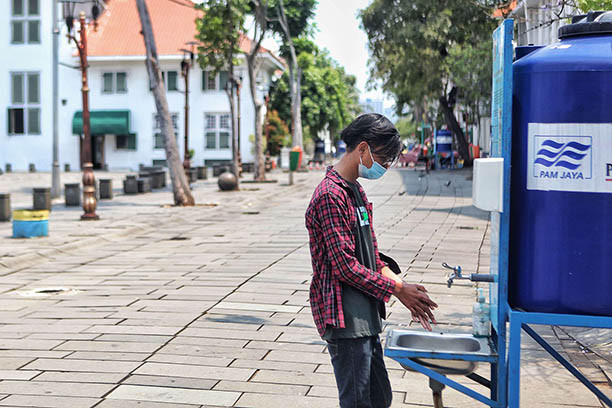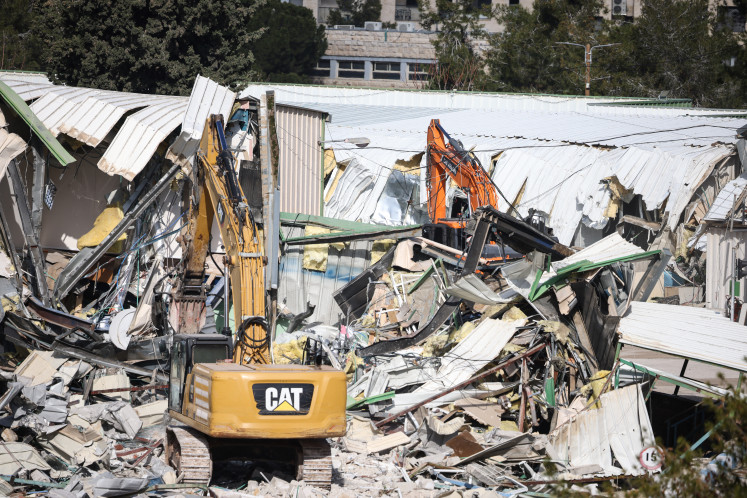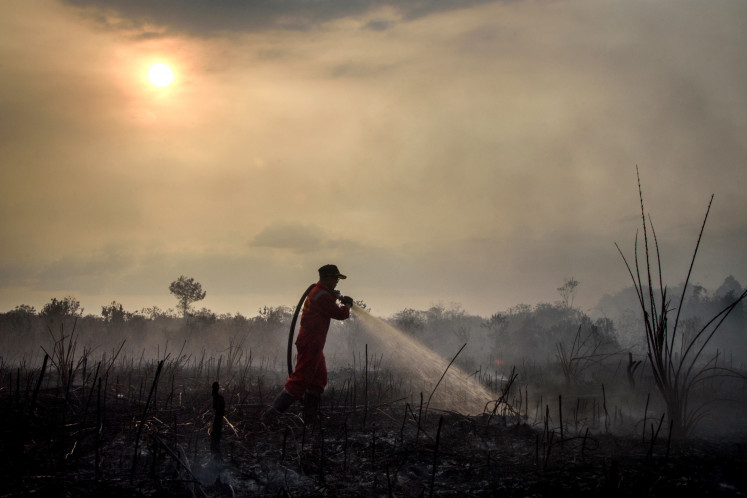Popular Reads
Top Results
Can't find what you're looking for?
View all search resultsPopular Reads
Top Results
Can't find what you're looking for?
View all search resultsOnly 31 percent of people in six big Indonesian cities follow '3M' health protocols: Survey
A survey by the United Nations International Children’s Fund (UNICEF) and Nielsen has found that only 31 percent of people in some big cities across Indonesia have thoroughly implemented the “3M” health protocols of mask-wearing, handwashing and physical distancing.
Change text size
Gift Premium Articles
to Anyone
A survey by the United Nations International Children’s Fund (UNICEF) and Nielsen has found that only 31 percent of people in six big cities across Indonesia have thoroughly implemented the “3M” health protocols of mask-wearing, handwashing and physical distancing.
"Only around one-third of a total 2,000 respondents routinely wash their hands, use their masks and maintain physical distancing altogether," UNICEF consultant Risang Rimbatmaja said on Wednesday.
The survey, conducted in August, polled residents of Jakarta, Semarang in Central Java, Bandung in West Java, Surabaya in East Java, Medan in North Sumatra and Makassar in South Sulawesi.
According to the poll, only 36 percent of respondents in all areas implemented two out of the 3M health protocols. Meanwhile, 23.2 percent of the respondents only implemented one out of three steps for COVID-19 prevention, while 9.3 percent of the respondents did not practice the prevention steps at all.
Residents of Jakarta -- the country's epicenter of the pandemic -- rank second among the surveyed cities in terms of exercising the health protocols thoroughly, with 37 percent of respondents in the capital city saying they implement all 3M protocols, following behind Semarang with 39.1 percent.
Of the 2,000 polled respondents, 70 percent said they already washed their hands routinely, 70 percent claimed they wore masks, while 48 percent respondents said they maintained physical distance in public places, UNICEF communications development specialist Rizky Ika Syafitri, said.
Despite the high number of respondents who routinely washed their hands, Rizky highlighted that the number of those who implemented all protocols altogether -- the 31 percent -- was still low.
“In order to prevent COVID-19 transmission, wearing a mask or maintaining distance only are not enough. Those three steps should be implemented at the same time,” Rizky said.
Nevertheless in September, Statistics Indonesia (BPS) said more Indonesians complied with the policy of wearing face masks in public, although more efforts to raise public awareness about the need to thoroughly implement health protocols and the risks of contracting COVID-19 were necessary.
An online survey conducted by BPS from Sept. 7 to 14 involving 90,967 respondents across the archipelago showed that the rate of people's adherence to the mask-wearing policy was higher than other health protocols, such as handwashing and physical distancing policies.
According to the survey results, around 92 percent of respondents wore face masks in public, while 75.38 percent and 73.54 percent regularly washed their hands and maintained a safe physical distance, respectively.
The rate of public compliance with the mask-wearing policy has increased by 8 percent since April, BPS head Suhariyanto said, while noting that compliance with the handwashing and physical distancing policies had somewhat declined.
“Ideally, these three parameters – mask-wearing, handwashing and physical distancing – should be parallel,” he said during a press conference livestreamed on the National Disaster Mitigation Agency’s (BNPB) official YouTube channel on Sept. 28. “After all, what good does wearing a mask do without regularly washing our hands and keeping a safe physical distance?” (dpk)
Editor’s note: This article is part of a public campaign by the COVID-19 task force to raise people’s awareness about the pandemic.










